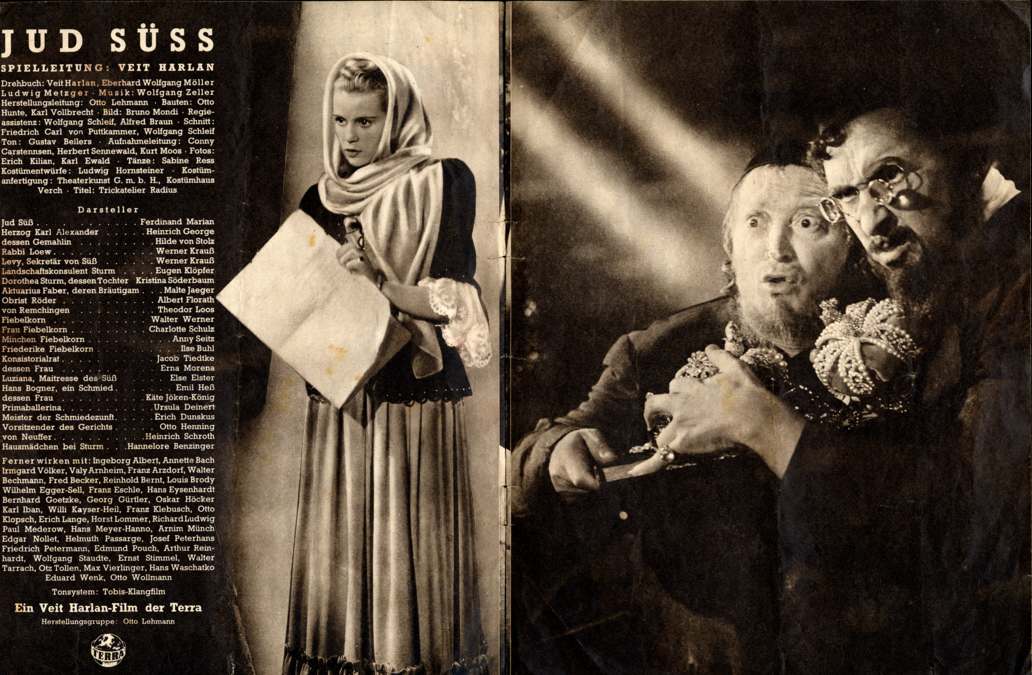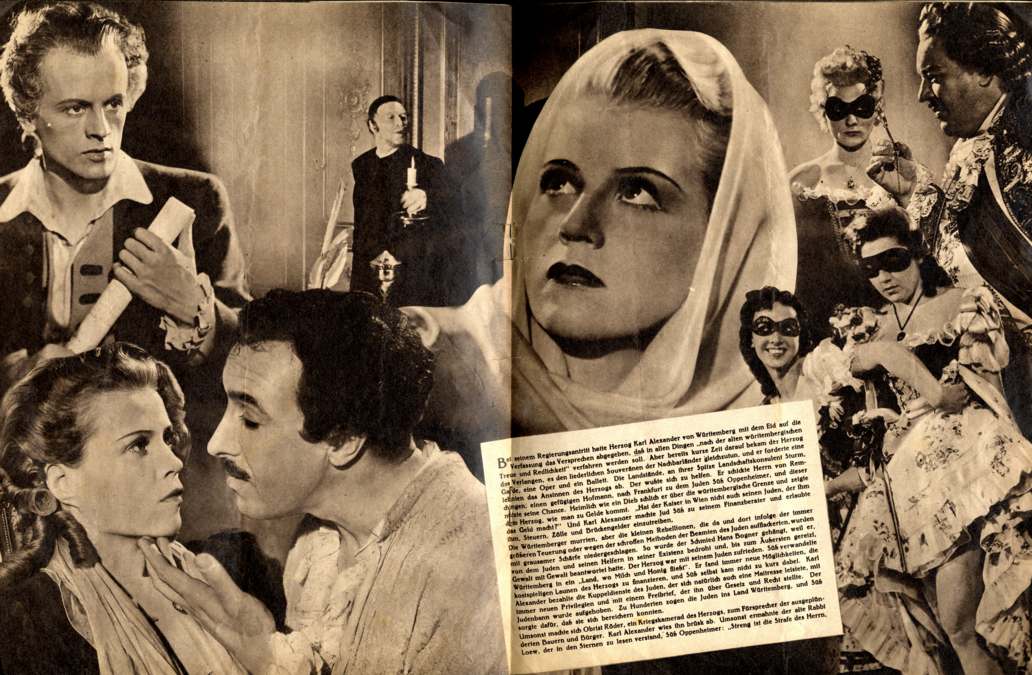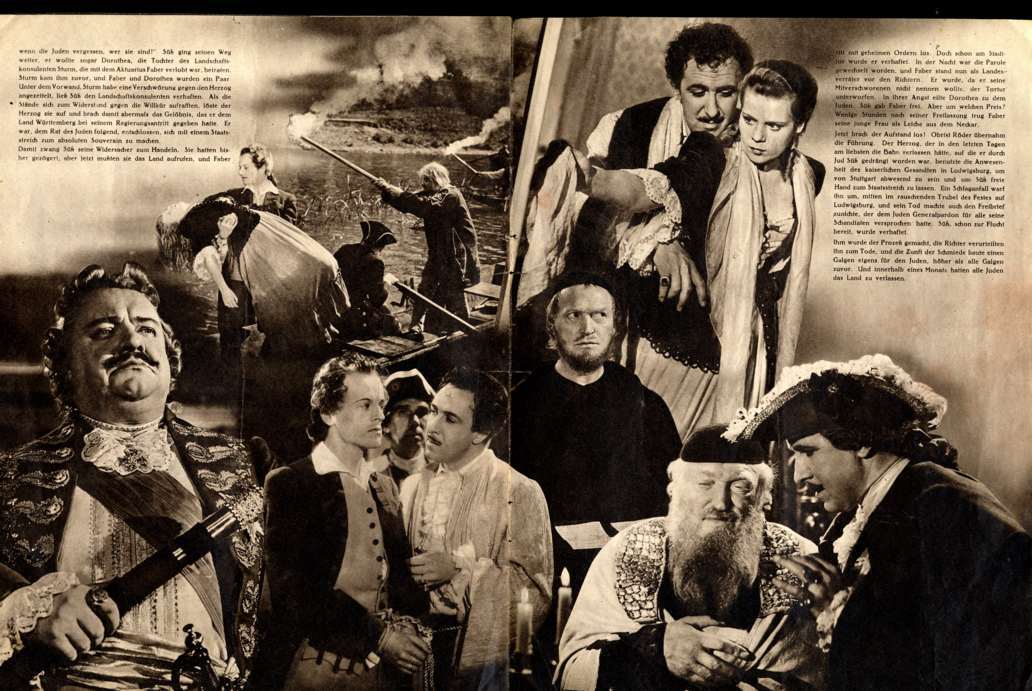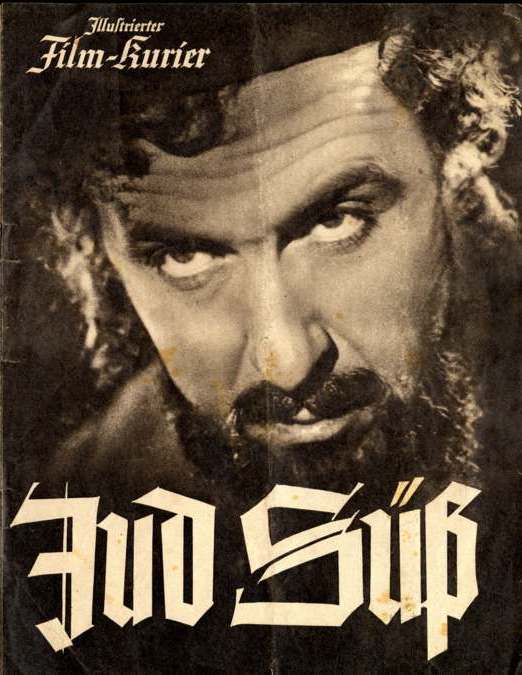Background: Jud Süß was one of a trio of anti-Semitic films released early in World War II. A high budget production, it involved the top German film stars in a historical melodrama the film claimed “was based on historical facts.” This is an eight-page flyer on the film. There were similar flyers for most films of the era.
The source: Illustrierter Film-Kurier #3130 [1940].
The Jew Süß


Part I of plot summary: Duke Karl Alexander of Württemberg takes an oath to the constitution as he begins his reign, promising to do everything “according to old Württemberg loyalty and honesty.” But shortly after becoming duke, he wants to hold his own with neighboring sovereigns, and demands a personal guard, an opera, and a ballet. The provincial council, headed by Councillor Sturm, turns down the duke’s demands. But he knows what to do. He sends Herr von Remchingen, a practiced courtier, to Frankfurt to find the Jew Süß Oppenheimer, who sees his chance. Like a thief, he sneaks across the Württemberg border and shows the duke how to make money. “Does not the emperor in Vienna have his financial advisers, whom he allows to collect taxes, customs duties, and bridge tolls?”
The citizens of Württemberg complain, but the small rebellions that break out here and there against the steadily growing taxes and crude methods of the Jew’s officials are brutally suppressed. The smith Hans Bogner is hanged because, driven to desperation by the Jew and his lackeys, he answers force with force. The duke is satisfied with his Jew. Süß transforms Württemberg into a land “flowing with milk and honey.” He finds new ways to finance the duke’s expensive tastes, and Süß himself gets rich too. Karl Alexander rewards the Jew for his matchmaking services with new privileges and with a letter giving him immunity from the law. The ban on Jews is lifted. Hundreds of Jews move to Württemberg and Süß makes sure that they can all get rich.
Röder, the duke’s war comrade, attempts in vain to make himself the spokesman for the ruined farmers and citizens. Karl Alexander brusquely rejects him. The old Rabbi Loew, who knows how to read the stars, vainly warns Süß Oppenheimer: “The Lord punishes Jews who forget who they are!”

Part II of the plot summary: Süß continues on his way, even attempting to marry Dorothea, the daughter of Counselor Sturm, who is engaged to Faber. Sturm stops him, and Faber and Dorothea are married. Under the pretext that Sturm is leading a conspiracy against the duke, Süß has him arrested. When the council resists the duke’s arbitrary use of power, he dissolves it, thus breaking the oath he took upon becoming duke. Following the advice of the Jew, he determines on a coup to make himself the absolute monarch.
This forces Süß’s opponents to act. Until then they had hesitated, but now they must rouse the people. They send Faber out with secret orders. He is arrested at the city gate. The password has been changed that night. Faber is accused of treason. Since he will not reveal is accomplices, he is tortured. Afraid, Dorothea goes to the Jew. Süß releases Faber. But at what price? A few hours after his release, Faber carries the body of his young wife from the Neckar River.
Now rebellion breaks out! Röder is the leader. The duke, who would gladly be out of the situation that Jew Süß has got him into, uses the presence of the emperor’s emissary in Ludwigsburg to leave Stuttgart, giving Süß a free hand to carry out the coup. He dies of a heart attack during the festivities at Ludwigsburg, which renders void his grant of immunity that gave the Jew immunity for all his crimes. Süß is arrested as he tries to escape.
He is tried and condemned to death. The smith’s relatives build the highest gallows ever constructed for the Jew. And all Jews have to leave the province within a month.




